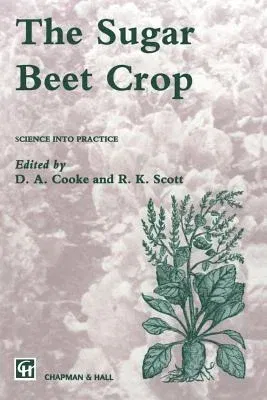D a Cooke
(Author)The Sugar Beet Crop (Softcover Reprint of the Original 1st 1993)Paperback - Softcover Reprint of the Original 1st 1993, 28 September 2011

Qty
1
Turbo
Ships in 2 - 3 days
In Stock
Free Delivery
Cash on Delivery
15 Days
Free Returns
Secure Checkout
Part of Series
World Crop
Print Length
704 pages
Language
English
Publisher
Springer
Date Published
28 Sep 2011
ISBN-10
940106654X
ISBN-13
9789401066549
Description
Product Details
Book Edition:
Softcover Reprint of the Original 1st 1993
Book Format:
Paperback
Country of Origin:
NL
Date Published:
28 September 2011
Dimensions:
23.39 x
15.6 x
3.56 cm
ISBN-10:
940106654X
ISBN-13:
9789401066549
Language:
English
Location:
Dordrecht
Pages:
704
Publisher:
Series:
Weight:
961.62 gm

